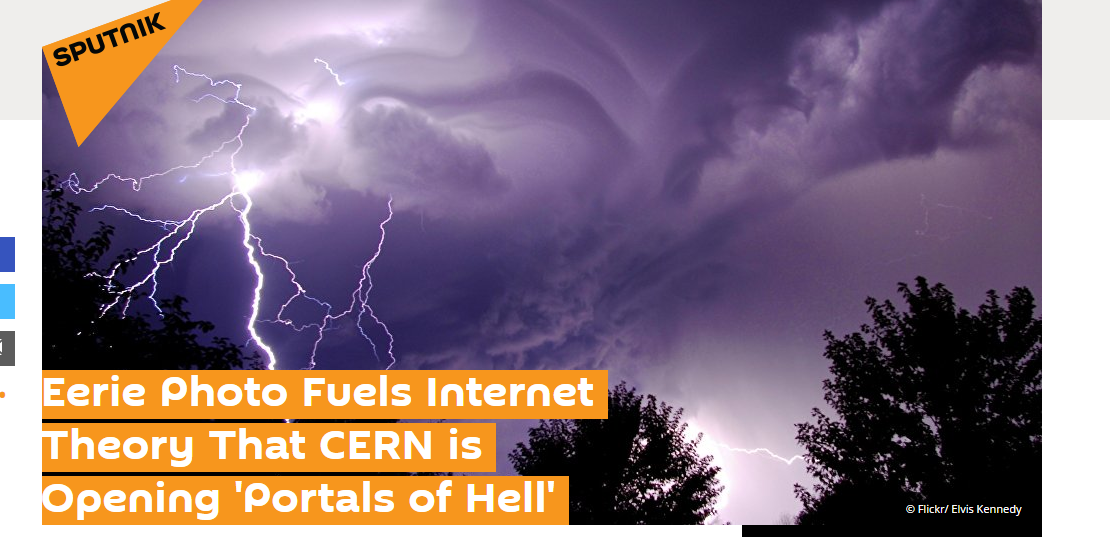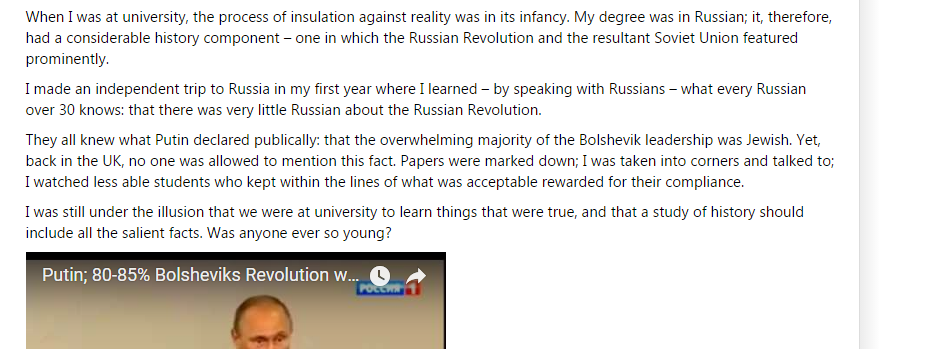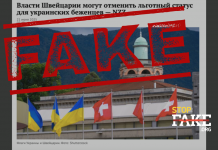By Jim Kovpak
“Telling the untold” is one of Sputnik News’ slogans. The obvious implication is that the Russian news service covers stories that “they” don’t want you to know about. “They” are the Western “mainstream media,” any media outlet which reports information that contradicts the claims of the Russian Foreign Ministry or the Kremlin. Of course it’s not unheard of for legitimate media outlets to ignore or play down certain stories because of political or financial motivation, but this doesn’t mean that an untold story is necessarily a bombshell revelation destined to shake the foundations of power. Sometimes the media ignores a story because it’s just plain unimportant, irrelevant or downright stupid.
Not Sputnik News, however! In the interest of keeping the public informed, Sputnik has blown the lid on what may be the most important story of our time. It is the story of an existential threat to humanity itself, one that the mainstream media won’t touch. Sputnik has discovered possible evidence that CERN, the European Center for Nuclear Research, may be opening a portal to another dimension, “possibly hell.” Yes, that’s right, hell. Like in the computer game Doom.


Now if we play devil’s advocate for a moment, we might suggest that Sputnik published this as a humorous story, as if to say “Look at these idiots who saw photos of a thunderstorm and decided that CERN must be opening portals to other dimensions! Point and laugh!” But reading the article, we see no statements from CERN, nothing about a severe thunderstorm that occurred on the day the CERN photos were taken, and no photos of similar thunderstorms from anywhere else in the world, which would show the reader that such dramatic sky visuals are not unique. The lack of any context and the reliance on the CERN conspiracy theorists suggests that Sputnik takes this seriously, or more likely, they’re trying to reach an audience who would take it seriously.
This is not the first time Russian state media has put out bizarre conspiracy theories. Over at RT, the aptly named Op-Edge section is basically open to any and all conspiracy theories one could imagine. The only stories too edgy for Op-Edge are those that call out the lies of the Kremlin or of Russia’s Foreign Ministry. In one infamous article, Sam Gerrans starts with a typical done-to-death rant about “kids these days” and how soft they have become and somehow manages to shoehorn the old “Jewish Bolshevism” conspiracy theory into the piece all in one piece.

Unlike the Sputnik piece, this is an opinion piece, meaning RT can distance itself from those views using a disclaimer. But one thing is certain – there is a glaringly obvious slant. None of the conspiracies seem to involve the Russian government. No wonder so many Western conspiracy nuts, the main target of articles like these, seem to think that Russia’s government is somehow outside of the New World Order global government.
Why do they propagate such conspiracy theories in the first place? Well part of it has to do with traffic and social media interaction. Conspiracy theorists tend to spend a lot of time on the internet and they virally share stories like those above. But there’s another reason why the conspiracy-loving audience, is cultivated.
Russia has a hard time getting thinking people on its side. Academics like Stephen Cohen end up embarrassing themselves as they stick up for Putin’s policies. Other Kremlin advocates and apologists often have business or financial connections to the country’s power structure. This being the case, the Kremlin is reduced to speaking to an audience that is extremely gullible. Someone who will fall for the most ridiculous conspiracy theory is certainly likely to believe the more down-to-earth lies coming from the Kremlin and, more importantly, disseminate them.
Conspiracy theorists are loyal foot soldiers because they instinctively believe anything that is contrary to what their government or those they deem “the establishment” tells them. This is one reason why conspiracy theorists are so often targeted by scams and snake oil. Many radical dissidents, often leftists, tend to be very skeptical toward their own government, but they also understand that other governments in the world also do immoral things and have rulers with self-serving agendas. This is not so reliable. The ideal audience is that which never practices critical thinking and judges everything with a very simple litmus test – “What is my own government saying about this?”
Of course there is another good reason why the Russian foreign language media promotes conspiracy theories, and it’s the same reason as why they promote them even more actively at home. Conspiracy theories are by nature non-falsifiable. If there’s a lack of hard evidence – it’s proof of a cover-up. If there’s contradictory evidence – it’s fabricated. Since these theories can never be concretely proven, the believer can never actually know what happened. Sure they’ll insist that 9/11 was an “inside job,” but none of these people can ever tell you what actually happened in their conspiracy alternative reality, point by point, as in the “official story” or any other major historical event that has been studied for decades. A conspiracy theory isn’t so much a concrete belief in something as it is a categorical disbelief in everything.
This “you can’t know what’s real” attitude has worked wonders for Putin’s government at home in Russia. Outside of Russia, it’s even easier to neutralize and manipulate people since they often know little to nothing about Russia or its role in the world. If you can get them to seriously read an article that claims scientists have opened a portal to hell, it’s not difficult to get them to believe their own governments are lying about Russia.





